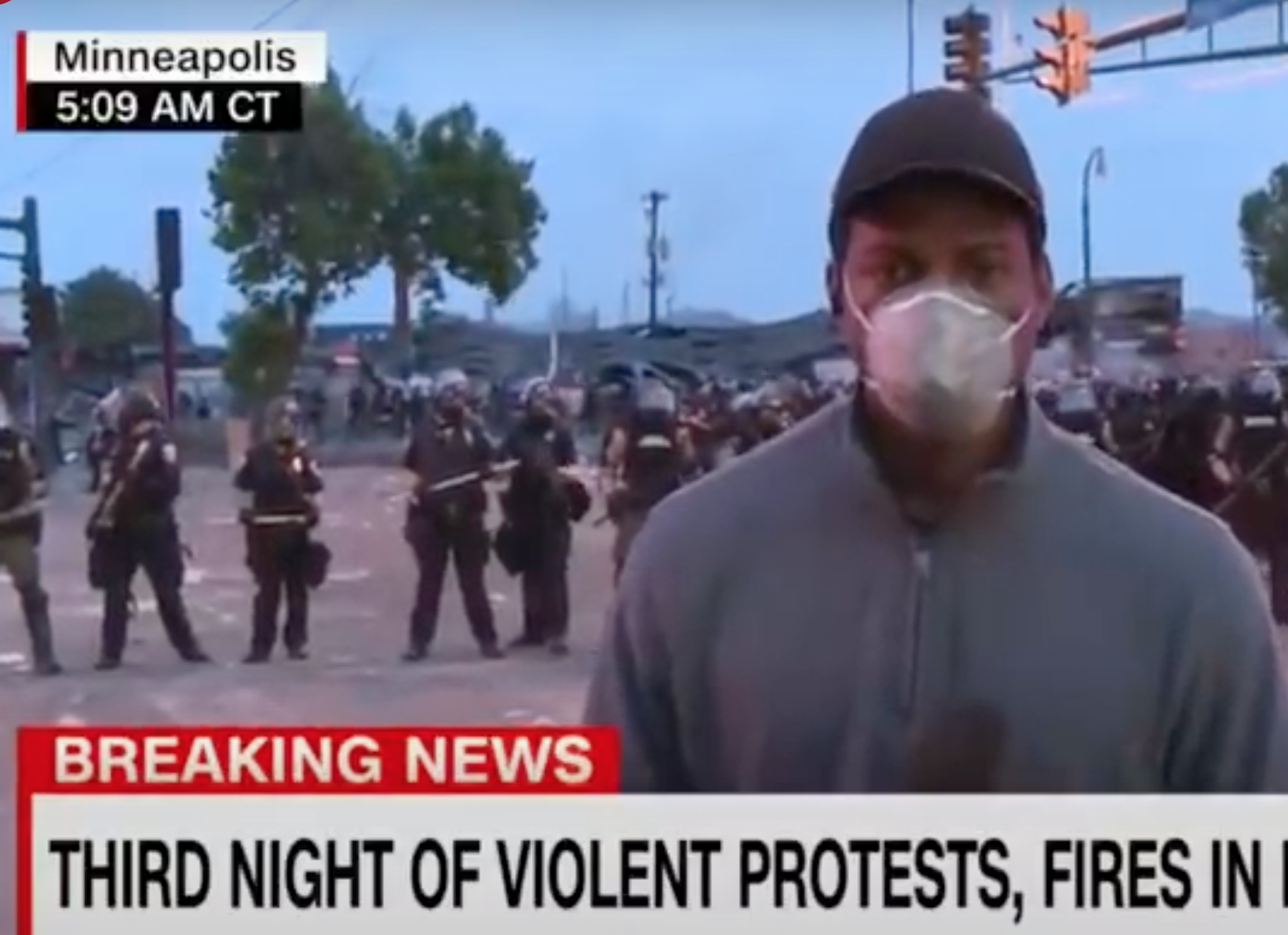The arrest of CNN journalist Omar Jimenez on live television isn’t just about the First Amendment.
It’s also about race.
Journalists of color with The National Association of Black Journalists and The National Association of Hispanic Journalists clearly saw it that way with swift condemnations on social media.
“#NABJ condemns the arrest of Black reporter @OmarJimenez live, on air. It is unfathomable and upsetting to witness this structural racism in real time. We are closely monitoring this situation,” tweeted NABJ President Dorothy Tucker, who is a reporter with CBS 2 Chicago.
The governor of Minnesota apologized for the arrest of Jimenez and two colleagues, Leonel Mendez and Bill Kirkos. The state police issued a misleading statement saying they were released “once they were confirmed to be members of the media.”
The CNN journalists were wearing their badges and also carrying camera equipment. On live television, they told state police they were with CNN.
Why were they arrested when they were doing their job in a professional manner, identified themselves as journalists, and also offered to move out of the police’s way?
It’s hard not to see race when a white CNN reporter, Josh Campbell, also reporting nearby, said he was approached by police. But he was allowed to continue to do his job.
CNN anchor John Berman pointed out that Jimenez is black and Latino, and Campbell is white. But he said he did not know whether race played a factor in Jimenez’s arrest.
Campbell told the CNN anchors he was “treated much differently.”
“I was treated much differently than [CNN correspondent Omar Jimenez] was. I’m sitting here talking to the National Guard, talking to the police. They’re asking politely to move here and there. A couple times I’ve moved closer than they would like. They asked politely to move back. They didn’t pull out the handcuffs. Lot different here than what Omar experienced,” Campbell said.
NAHJ tweeted Friday morning: “This apology is not enough & does not take into account the difference of treatment between a white male correspondent & a black male correspondent — one permitted to remain in the area & the other arrested.”
Jimenez, who is a graduate of Northwestern University, did not address the race question when he was interviewed by his CNN colleagues Friday morning. Jimenez told CNN viewers that the police were cordial and he and two other crew members arrested were not harmed in the arrest.
“I showed them my badge. They knew we were reporters,” Jimenez told CNN anchors. “We didn’t get a clear reason for why we were arrested.”
But many journalists of color talked about race.
“I could not help but wonder whether his brown skin marked him for this indignity, and I thought of my own adult sons and the threat they face in a society that still too often demonizes African-American men,” said Charles Whitaker, the Dean of the Medill School of Journalism, Media, Integrated Marketing Communications at Northwestern University, in a statement.
Miguel Marquez, CNN correspondent, said on live television Friday community members were frustrated to see video of the journalist being arrested and not of the police officer Derek Chauvin being taken into custody.
“They were frustrated to see an African-American arrested on live television,” Marquez said reporting from Minnesota for CNN.
We can’t keep ignoring the racism that impacts journalists, including Asian American journalists who have been harassed while covering the COVID-19 crisis. We can’t ignore that Spanish-language journalists don’t have the same amount of access to the White House as other journalists.
We can’t ignore the racism that infects police departments, government and all institutions, including the media.
That is why George Floyd is dead. That is why blacks and Latinos are dying at disproportionate rates from COVID-19. The virus also is racism.
“Recent events – not the least of which are the disproportionately devastating effects of COVID-19 on communities of color – have once again placed our nation’s racial divide in stark relief. I am grateful for the work of intrepid reporters like Omar Jimenez who are on our streets giving face and voice to struggles and wrongdoings. And I fiercely decry any efforts to hinder these brave journalists – regardless of their race or ethnicity – from telling these vital stories,” Whitaker said.
Teresa Puente teaches journalism at California State University, Long Beach, and is a senior facilitator with The OpEd Project.
